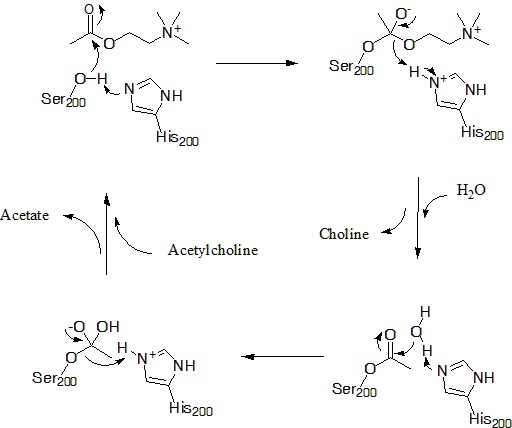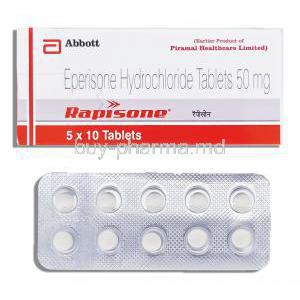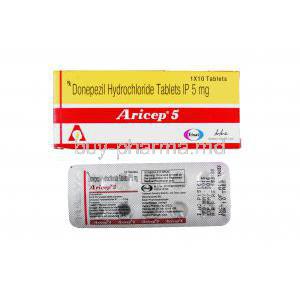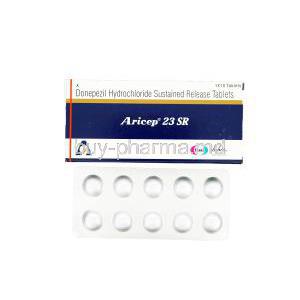Revamer, Rivastigmine Tartrate
- Introduction
- Overview of Rivastigmine Tartrate
- Historical Development and Approval
- Purpose of the Medication
- Composition of Revamer
- Formulations Available
- Dosage and Administration
- Uses of Revamer
- Off-Label Use of Revamer
- Side Effects of Rivastigmine Tartrate
- Important Precautions
- Special Considerations in Administration
- Overdose and Emergency Situations
- Handling and Storage of Revamer
- Patient and Caregiver Education
- Future Perspectives and Ongoing Research
- Conclusion
Introduction
Rivastigmine Tartrate, a component in the treatment of cognitive disorders, signifies a remarkable progression in the field of neuropharmacology.
This medicine, meticulously crafted through research, has garnered widespread acclaim for its effectiveness in addressing symptoms related to dementia linked to Alzheimer's and Parkinson's diseases.

Alzheimer's brain
The historical trajectory of Rivastigmine Tartrate from its inception to approval underscores its role in therapeutic approaches aimed at enhancing the quality of life for individuals facing cognitive impairments.
Overview of Rivastigmine Tartrate
Rivastigmine Tartrate is a cholinesterase inhibitor that works by boosting the function of cholinergic activity. It does this by slowing down the enzyme for breaking down acetylcholine, an important neurotransmitter. This action directly targets the deficiencies in function seen in Alzheimer's and Parkinson's disease. As a result, it helps improve symptoms and supports daily functioning and activities.

Acetylcholine mechanism
Historical Development and Approval
The origins of Rivastigmine Tartrate can be linked to scientific research focused on comprehending neurodegenerative conditions.
Its creation was marked by a sequence of studies that left no doubt about its effectiveness and safety, ultimately resulting in its approval by significant health regulatory organizations.
This breakthrough in pharmaceutical advancement highlighted an era in the treatment of cognitive disorders.
Purpose of the Medication
- Improving abilities in individuals with dementia.
- Relieving symptoms associated with Alzheimer's and Parkinson's diseases.
- Enhancing the well-being of those affected.
Composition of Revamer
Revamer, a formulated medication containing both active and inactive ingredients has been carefully designed to ensure its effectiveness and safety. Each component plays a role in its therapeutic benefits and overall profile.
Active Ingredients
The main component of Revamer is Rivastigmine, which plays a role in its therapeutic effects. The amount of Rivastigmine determines the effectiveness and strength of the medication in the formulation.
Inactive Ingredients and Their Roles
Revamer contains components besides Rivastigmine, such as stabilizers, fillers, and preservatives. These ingredients play a role in maintaining the stability of the medication, improving its absorption into the body, and extending its effectiveness for optimal therapeutic outcomes.
Formulations Available
Revamer comes in forms such as capsules that you can swallow, a solution that you can drink, and patches that you can apply to your skin. These options are designed to cater to the preferences and medical needs of patients.
Dosage and Administration
To achieve the results and minimize any negative effects it is important to administer Revamer in a personalized manner taking into account the individual needs of each patient.
Standard Dosage Guidelines
The usual starting dose of Revamer is generally low. It is then gradually increased to reach the right maintenance level. This step-by-step adjustment is important to minimize any side effects and help the patient's body adapt to the medication.
Adjusting Dosage for Specific Patient Needs
It is crucial to make changes in the dosage based on how each patient responds, their medical conditions, and the medications they are taking at the same time. This personalized adjustment is important to achieve the results while reducing any potential risks.
Administration Methods and Best Practices
To ensure that Revamers administration is effective it is important to follow the recommended guidelines for both transdermal methods. When taking the medication orally, it is advised to have meals alongside it as this can help with absorption.
On the other hand, when using the transdermal patch, make sure to apply it on clean and dry skin according to a regular schedule in order to maintain consistent levels of the medication in your system.
Uses of Revamer
Revamer, a pharmaceutical company specializing in neurology, plays a crucial role in the treatment of neurodegenerative disorders. Its impact goes beyond alleviating symptoms and actually improves the overall well-being of individuals dealing with these challenging diseases.
Primary Indications
Revamer is mainly used to treat mild dementia linked to Alzheimer's and Parkinson's diseases. It goes beyond being a medication; it serves as a ray of hope for patients and their families, guiding them toward better cognitive abilities and a sense of normalcy in their everyday routines.

Alzheimer's
Mechanism of Action in Treating Alzheimer's and Parkinson's Diseases
Inhibiting the enzyme acetylcholinesterase is a mechanism that helps increase levels of acetylcholine in the brain. Acetylcholine plays a role as a neurotransmitter in cognitive processing.
Revamer, besides providing relief, has additional neuroprotective effects, which may slow down the advancement of neurodegenerative diseases.
Furthermore, by regulating neurotransmitter levels, Revamer also helps alleviate psychological symptoms associated with dementia.
Understanding How Revamer Benefits Cognitive Functions
Revamers effectiveness in enhancing functions is evident through multiple mechanisms. Its primary action involves boosting neurotransmission, which plays a vital role in memory formation and retrieval.
This enhancement leads to attention span, better memory recall, and overall mental clarity. Additionally, Revamer's ability to stabilize mood and behavior greatly contributes to enhancing the quality of life for patients making it a versatile treatment option for disorders.
Off-Label Use of Revamer
Revamer, a medication initially developed for targeted conditions has made its mark in a wider range of therapeutic applications. This unconventional utilization showcases the drug's adaptability. Introduces fresh possibilities for patient treatment going beyond its original intention.
Exploring Non-Approved Uses
Exploring the off-label uses of Revamer takes us on a path into the world of groundbreaking medical therapies. One area that particularly stands out is its potential to treat conditions like body dementia and intense agitation in individuals with autism.
Although these applications are not officially approved, initial studies have shown results underscoring Revamers' versatility as a neurological treatment.
Research and Studies Supporting Off-Label Uses
- Revamer has shown promise in the field of neuropsychiatric, with studies indicating its benefits in managing symptoms of various neuropsychiatric conditions. This brings hope for challenging cases in this area.
- Emerging research suggests that Revamer may also have cognitive enhancement properties that extend beyond its approved indications, opening up possibilities for use in neurology to aid cognitive function in other neurological disorders.
- Furthermore, investigations into the use of Revamer for managing behavioral issues across different patient populations have yielded positive and encouraging results, expanding its therapeutic applications.
Patient Testimonials and Case Studies
There is a narrative backed by anecdotal evidence and case studies that highlight the off-label advantages of Revamer. People with neurological and psychiatric conditions have shared their experiences of experiencing improved symptoms and enhanced quality of life.
These accounts further support the idea that Revamer could be beneficial in a range of clinical settings. While it's important to note that these testimonials cannot replace scientific evidence, they do provide valuable insights into the potential benefits and versatility of using Revamer in unexplored areas of medical practice.
Side Effects of Rivastigmine Tartrate
Rivastigmine Tartrate, a medication prescribed for disorders, comes with a variety of side effects. Some of these effects are common and manageable, while others are rare but more serious. This emphasizes the need for medical supervision when using this treatment.
Common Side Effects and Management
Gastrointestinal issues like feeling nauseous or vomiting can often be improved by taking the medication with food or adjusting the dosage. If you experience dizziness or headaches, they are usually temporary.
It's important to keep an eye on them in case they persist. If you have muscle cramps or feel tired, adjusting the dose of the medication and treating the symptoms can help manage these side effects.
Rare but Serious Side Effects
In rare cases, Rivastigmine Tartrate may cause serious side effects such as severe allergic reactions, irregularities in the heart rhythm, and bleeding in the gastrointestinal tract.
These negative reactions require medical attention and may even lead to the need, for stopping the medication.
Long-Term Impact of Side Effects
The potential long-term consequences of side effects caused by Rivastigmine Tartrate, while not extensively documented, can affect how well patients stick to their treatment plan and their overall well-being.
It is crucial to monitor and proactively manage these impacts in order to achieve the best possible treatment results.
Important Precautions
To ensure the safety of patients and maximize the effectiveness of Rivastigmine Tartrate it is important to follow precautions during its administration.
Who Should Not Take Revamer
Revamer should not be used by people who have a known allergy to Rivastigmine or any of its ingredients.
Moreover, individuals with liver or kidney problems should either avoid taking this medication altogether or use it only under close medical guidance.
Interactions with Other Medications
Revamer has the potential to interact with types of medications such, as anticholinergic drugs, beta-blockers, and certain anesthesia agents. These interactions can.
Reduce the effectiveness of Rivastigmine Tartrate or worsen its side effects. Therefore it is important to examine the patient's medication history before starting treatment to ensure optimal outcomes.
Lifestyle and Dietary Considerations
The way you live your life and the choices you make regarding your diet can have an impact on how effective and safe Rivastigmine Tartrate's for you. It's important for patients to steer clear of alcohol maintain a balanced diet and seek guidance from their healthcare provider before introducing any new supplements or herbal products while undergoing treatment, with Revamer.
Special Considerations in Administration
The use of Rivastigmine Tartrate, a medication for treating cognitive disorders, needs to be handled with caution in specific groups. Extra care is necessary when giving it to individuals, pregnant or breastfeeding women, and children in order to ensure effectiveness and safety.
Administration to the Elderly
In individuals, the way Rivastigmine Tartrate is processed by the body may change due to natural age-related changes. That's why it's important to start treatment, with doses and slowly increase them while closely observing for both effectiveness and any negative reactions.
Use in Pregnant Women and Nursing Mothers
The safety of using Rivastigmine Tartrate during pregnancy has not been extensively studied, so it should only be used if the potential benefits outweigh the risks to the developing baby.
If you are a nursing mother it's important to be cautious because we don't know if Rivastigmine is passed through breast milk.
You should consider the importance of the medication to you when deciding whether to continue breastfeeding or stop taking the drug.
Pediatric Use and Safety
The use of Rivastigmine Tartrate in children is not well established. There are clinical trials that specifically focus on this age group. Therefore it is important to exercise caution when considering its use, adjusting dosages accordingly and closely monitoring for any side effects or unexpected reactions.
Overdose and Emergency Situations
When someone accidentally takes too much Rivastigmine Tartrate it is important to take immediate and informed actions to minimize any serious health effects. It is crucial to recognize the symptoms know what steps to take away and understand the long-term care needs in order to effectively handle these situations.
Identifying Overdosage Symptoms
Signs of an overdose of Rivastigmine Tartrate could include feelings of nausea and vomiting, muscle weakness, excessive salivation, profuse sweating, slow heart rate (bradycardia), and in severe instances, seizures or difficulty breathing. It is crucial to identify these symptoms to ensure swift and effective intervention.
Immediate Actions and Antidotes
If someone overdoses on Rivastigmine Tartrate, it is crucial to seek medical help. Typically, doctors will employ methods like gastric lavage and symptomatic treatment.
Although there isn't an antidote for Rivastigmine Tartrate overdose, medications, like atropine, can be administered to counteract its cholinergic effects.
Long-Term Care Post Overdosage
After an overdose, it may be necessary to provide long-term care in cases where there have been significant complications. This involves monitoring for any lasting effects, evaluating for possible neurological damage, and offering supportive care as necessary to facilitate a complete recovery.
Handling and Storage of Revamer
Properly managing and storing Revamer is essential to maintaining its effectiveness and ensuring the safety of patients. It's vital for caregivers and patients to have an understanding of the correct storage conditions for the medication as well, as well, as the necessary precautions when handling it.
Proper Storage Conditions
- Store Revamer at room temperature avoiding sunlight and moisture to maintain its stability and effectiveness.
- It's important to keep the medication, in its container tightly sealed and out of the reach of children and pets.
- Remember to check the expiration date and store the medication in a cool dry location to ensure its integrity.
Handling Precautions for Caregivers
When dealing with Revamer, caregivers need to be cautious to prevent any contact or consumption. This involves washing their hands and, after handling the medication, using gloves if needed and being mindful of the potential dangers that can arise from mishandling the drug.
Disposal Guidelines and Environmental Considerations
It is crucial to dispose of Revamer to prevent any harm to the environment and accidental consumption. If you have any expired medication it is important to follow specific guidelines for disposal. These may include participating in medication take-back programs or following the instructions provided by your healthcare provider or pharmacist. Avoid flushing it down the toilet or throwing it in the trash without taking proper precautions as this can have negative effects, on the environment.
Patient and Caregiver Education
To ensure the results, with Revamer it's important to go beyond just taking the medication. A holistic approach is needed, which involves educating both patients and caregivers.
It's crucial to have an understanding of how to use Revamer correctly be aware of any potential risks and know about the support resources available.
This knowledge will greatly help in navigating the healthcare system when undergoing Revamer therapy.
Educating on Proper Use and Risks
To ensure the use of Revamer, it is vital to educate individuals about the dosage regimen how to handle any potential side effects and how to identify signs of adverse reactions.
Patients and their caregivers should be well informed about the risks that come with this medication, such as its interactions with other drugs and any contraindications.
Support Resources and Patient Groups
Getting in touch with support groups and communities of patients can be really helpful. It allows you to gain insights and share experiences while also receiving emotional and practical support.
Having access to materials like brochures and online resources is another great way to empower patients and caregivers. These resources provide knowledge, about their condition and the available treatment options.
To successfully navigate the healthcare system for Revamer therapy, it is crucial to have a grasp of how prescriptions work, what insurance covers, and the various roles that different healthcare professionals play throughout the treatment process.
It is highly recommended that patients and their caregivers actively participate in discussions with their healthcare providers, asking questions and seeking clarification to ensure they are well-informed when making decisions, about their treatment.
Future Perspectives and Ongoing Research
Revamers journey in the field is a story that keeps evolving as research continues and new clinical trials are on the horizon.
There are possibilities for expanding its applications and exploring its effectiveness, safety, and potential new roles in therapy.
Upcoming Clinical Trials
Researchers are currently conducting clinical trials to investigate the potential benefits of using Revamer in a range of neurodegenerative and psychiatric conditions. These trials aim to expand the applications of Revamer.
Additionally, scientists are exploring optimized dosing regimens and formulations to improve compliance and enhance treatment outcomes.
Furthermore, ongoing research is focusing on biomarker studies, which could pave the way for more personalized and effective treatment strategies utilizing Revamer.
Potential Future Applications
There is increasing evidence that points to future uses of Revamer in areas beyond its current approved treatments. This includes its potential to address impairments associated with other neurological disorders and investigate its ability to protect the brain in different models of brain injury.
Emerging Research and Breakthroughs
New studies are constantly revealing discoveries about the way Revamer works in our bodies. By understanding its mechanisms, we can potentially develop new and improved treatment approaches that make it more effective while minimizing any unwanted side effects.
Conclusion
The contribution of Revamer in treatment, specifically in the management of neurodegenerative disorders, cannot be underestimated. Its effectiveness and safety record have established it as a component in the treatment approach for ailments such as Alzheimer's and Parkinson's disease.
Summarizing the Role of Revamer in Medical Treatment
Revamer, being a cholinesterase inhibitor, has shown advantages in enhancing cognitive abilities and daily functioning among patients. This highlights its role in clinical settings. Owing to its versatility and potential, for use extensive research is being conducted on Revamer.
Final Thoughts on Safety and Efficacy
While Revamer is known to be effective, it is important to monitor its safety, especially in populations such as the elderly and individuals with other medical conditions.
Following the recommended guidelines for dosage, administration, and regular checkups is essential to ensure that we can maximize the advantages of this medication while minimizing any potential risks.
Encouraging Continued Research and Awareness
Ongoing research on Revamer holds importance as it not only helps us improve our knowledge about its existing applications but also uncovers new therapeutic possibilities. It is crucial to educate healthcare professionals, patients, and caregivers about Revamer to ensure its optimal utilization and positive outcomes in clinical settings.





















